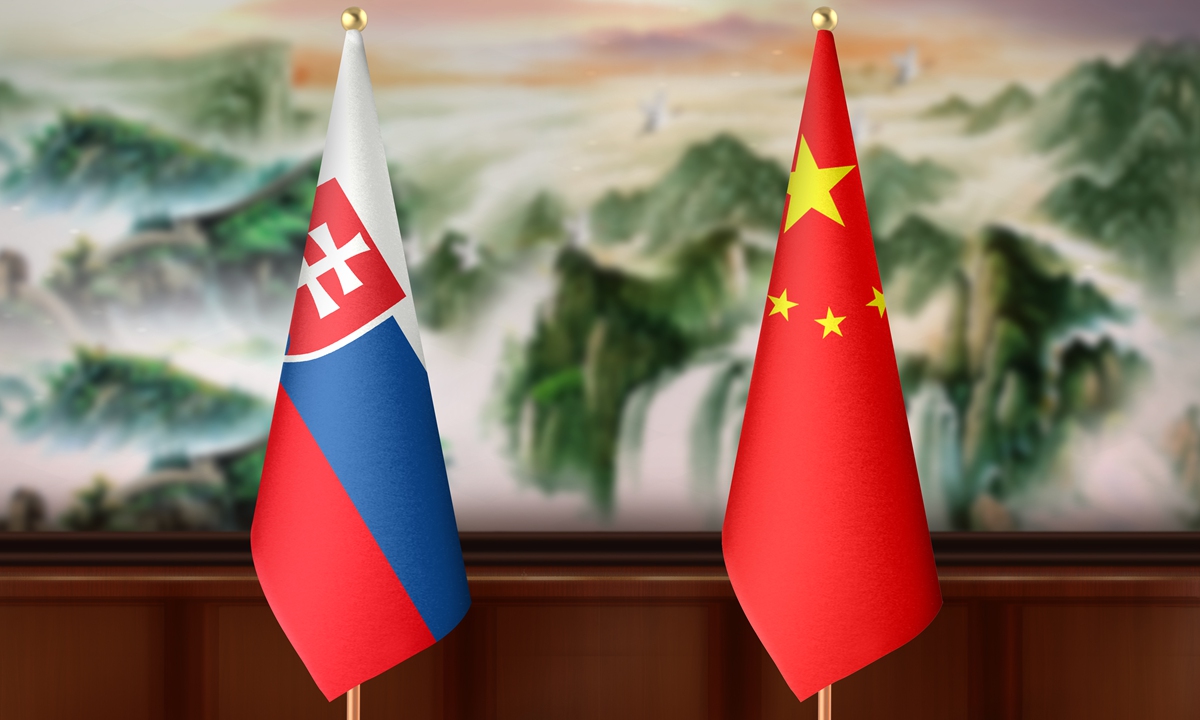
China Slovak Photo: VCG
Slovak Prime Minister Robert Fico will pay an official visit to China from October 31 to November 5,
mk which is set to deepen friendship and trust, amid a series of high-level interactions between China and European countries. Analysts said these underscore differences over Chinese electric vehicles (EVs) are only a small part of the broader China-EU relationship, noting that economic ties between the two sides remain strong.
Chinese President Xi Jinping will meet with Fico, and Premier Li Qiang and Chairman of the National People's Congress (NPC) Standing Committee Zhao Leji will have talks and meet with him respectively. The two sides will have in-depth exchanges of views on bilateral relations and issues of mutual interest, Chinese Foreign Ministry spokesperson Lin Jian said on Monday.
Through Fico's visit, China stands ready to work with Slovakia to deepen the traditional friendship and political mutual trust, expand exchanges and cooperation in various fields, promote high-quality Belt and Road cooperation and cooperation between China and Central and Eastern European countries, and elevate bilateral relations to a higher level, Lin said.
According to a release from the press office of the Slovak government, Fico is set to depart from Slovakia on Wednesday evening accompanied by a delegation of ministers and business representatives for a six-day visit to China. In addition to Beijing, he will travel to Hefei, East China's Anhui Province, to visit a company specializing in energy solutions, and to Shanghai to attend the opening ceremony of the China International Import Expo.
On May 15, 2024, Fico was shot in an assassination attempt and critically injured in the town of Handlova, Reuters reported.
Slovakia and China have maintained close and friendly relations. As the head of Slovakia's left-wing Smer-SD party, Fico administration has maintained a similarly positive approach toward China. The upcoming visit is expected to further deepen cooperation and foster stronger exchanges between the two countries, Jian Junbo, deputy director of the Center for China-Europe Relations at Fudan University's Institute of International Studies, told the Global Times on Tuesday.
Slovakia was one of the five countries to vote against the EU imposing tariffs on China-produced electric vehicles in October, signaling its support for China, Jian said, noting that the EV sector presents substantial opportunities for collaboration between the two countries. Slovakia and China can strengthen cooperation across the entire EV supply chain and work together to drive the industry's growth.
Beyond the EV sector, there is further potential for economic and trade cooperation, particularly by encouraging Chinese enterprises to invest in Slovakia. Cultural exchanges also present valuable opportunities for collaboration, promoting deeper mutual understanding and strengthening engagement, said the expert.
Fico's visit comes amid a series of recent high-level interactions between China and European countries. Currently, Finnish President Alexander Stubb is on a state visit to China from October 28 to 31.
Although the European Commission oversees policymaking, individual member states differ significantly in their economic and trade relations with China, resulting in varying interests and stances toward China. The EV issue is only a small part of China-EU relations, and their economic ties remain strong, with opportunities to further enhance investment cooperation, Jian said.
However, the current friction over EVs carries symbolic significance and broader implications, and the EU should show sincerity in consulting with China to resolve them, Jian said.
Despite competition, China and the EU remain highly interdependent, with cooperation yielding increasing benefits. It is essential for both sides to manage challenges through bilateral consultations and coordination, or within the multilateral framework of the World Trade Organization, rather than resorting to unilateral protectionist measures, Jian noted.

